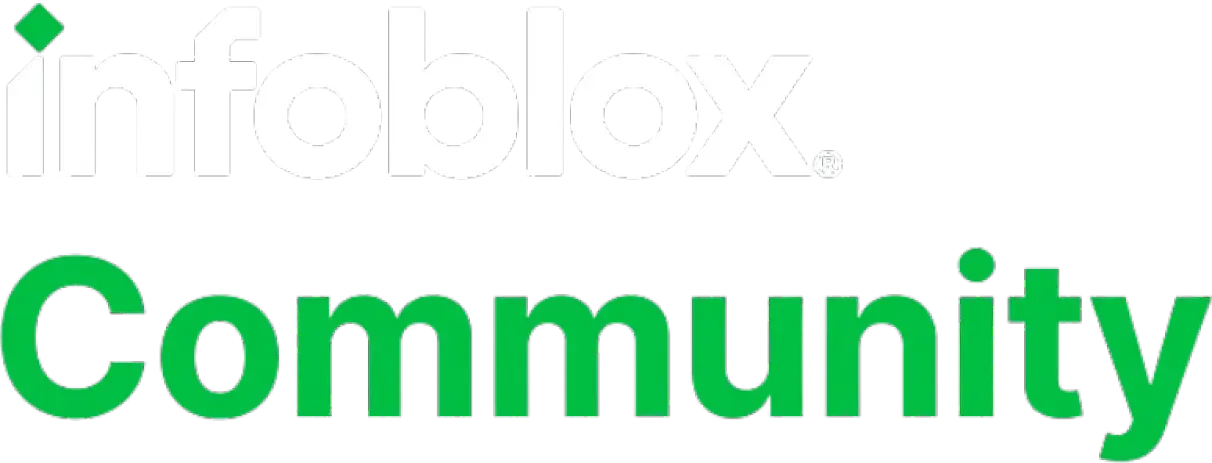Infoblox product line
Hello community !
I am working as cyber sec engineer with a company which is partner with Infoblox
I am really confused about product line and naming
can someone explain it in easy way
regards
0
Answers
-
Hey @Cyber22x happy to explain! At its core, Infoblox's full line of products is meant to unite networking, security, and cloud operations. That means breaking down silos to help those teams and functions work better together in a hybrid, multi-cloud environment.
Looking at the specific products, they're split into networking and security.
Networking (aka DDI, for the core network services of DNS, DHCP, and IPAM):
- NIOS: Infoblox’s original product. NIOS appliances (physical or virtual) connect together to form an enterprise-grade “Grid” of appliances that serve DNS and DHCP to networks. This is tightly integrated with IP Address Management, Network Discovery, Reporting, and automation.
- Universal DDI Suite: Formerly known as “BloxOne”, Universal DDI is Infoblox 's SaaS offering. It enables SaaS management of DNS and DHCP services running on virtual and physical appliances across hybrid, multi cloud environments. It also provides for unified management of DNS and DHCP on other platforms (Microsoft, BIND, AWS, Azure, GCP, Akamai, Cloudflare, Meraki, etc).
- Universal Asset Insights: Part of Universal DDI that focuses on providing network discovery, analysis, and insights across your entire environment.
- NIOS-X as a Service: Part of Universal DDI, this allows you to run DNS/DHCP services without any physical or virtual VM’s. Just connect your network via IPsec VPN to the closest appropriate POP and use Infoblox’s compute to run the services for you.
- Networking Ecosystem: Not so much a product, but the integrations that pair with Infoblox networking products to improve efficiency and effectiveness within your environment.
- Automation Products: Additional networking tools and features, such as Global Load Balancing, that help simplify and streamline network management.
Then we have Security:
- Infoblox Threat Defense: Cloud-based security solution that provides DNS-layer security — using Protective DNS and predictive threat intelligence — across your entire network.
- DNS Infrastructure Protection: Formerly known as Advanced DNS Protection (ADP), it provides infrastructure protection to stop protocol-level threats (exploits, DDoS attacks, etc.) from attacking or overwhelming the services provided by Infoblox appliances.
- SOC Insights: Built on top of Threat Defense and not a standalone product, it uses AI to gather and analyze large amounts of DNS threat intel and asset data to identify high-risk threats and help SecOps teams prioritize them for greater efficiency and faster resolution.
- Security Ecosystem: Again, not so much a product, but the integrations to help improve SecOps response and efficiency within your unique environment.
- Brand Protection: Another capability built into Threat Defense, it uses lookalike domain monitoring and domain mitigation services to protect against domain-based cyberthreats.
- Threat Intelligence: This is the engine that powers our security tools, using deep DNS intelligence to uncover malicious threat infrastructure as it forms.
0
Categories
- All Categories
- 5.2K Forums
- 4.7K Critical Network Services
- 472 Security
- Visibility and Insights
- Ideas Portal
- Webinars & Events
- 280 Resources
- 280 News & Announcements
- Knowledge Base
- Infoblox Documentation Portal
- Infoblox Blog
- Support Portal
- 8 Members Hub
- 4 Getting Started with Community
- 4 Community Support

